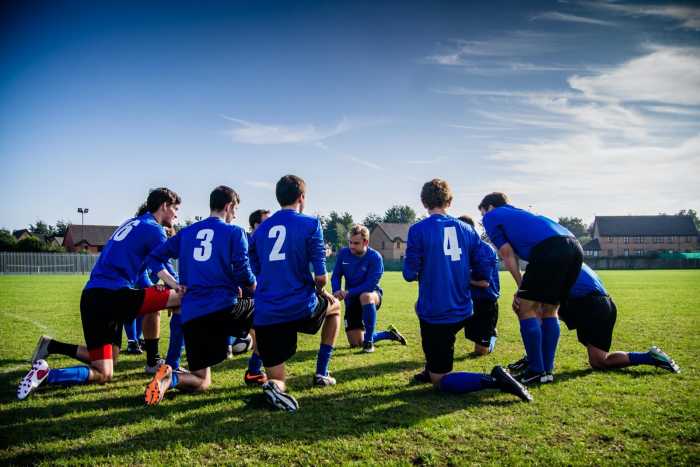One of the biggest determining factors in a student athlete’s success – both on the field and off – is the support, guidance, and encouragement of the adults in their lives.

Unfortunately, what many parents consider support is actually disruptive to their child and their team (at best) or places the weight of unrealistic expectations on them. With the right mindset and proven strategies, though, you can help your student athlete be the best they can be, and still enjoy their sport.
Encourage Balance
It can be very exciting when your child finds their “thing,” and devotes themselves to learning, practicing, and constantly improving their performance. However, there can be too much of a good thing, and allowing your child to become single-mindedly focused on their sports can have some major drawbacks down the road.
Therefore, it’s important for you as a parent to encourage balance in your athlete’s life. This includes making sure your child gets plenty of rest, not only so they stay healthy, but also to allow their bodies to heal between practices so they can avoid injury and have the energy and stamina to perform on the field. Making sure that they have some downtime, and enough time for studying, is important as well. Stress that the “student” part of “student athlete” is just as important and provide the tools and support necessary to do well in school too.
Encouraging balance also means helping your child develop resilience, and to understand that they are more than just an athlete. Many teens become depressed or have difficulties adjusting to life once the season is over. Remember to praise your teen for traits other than athletic prowess and acknowledge their other skills and talents that have nothing to do with athletics. Supporting your athlete means supporting the whole person.
Explore Opportunities
When your child is committed to a sport, getting instruction and coaching from a wide range of sources is helpful. Different coaches and programs often have different approaches to the fundamentals of the sport or how to play the game, and your athlete may benefit from those new perspectives.
Your teen may come to you with information or ideas about clinics, camps, or other opportunities, but don’t hesitate to look into different opportunities yourself. If your child has a passion for basketball, for instance, look into different basketball programs for developing new skills, or consider getting involved with a local travel team separate from the school. Showing an interest in your child’s development as an athlete and giving them chances to grow in different environments can help them excel and may even open doors to new opportunities in the future.
Let the Coaches Coach
One of the most difficult aspects of being the parent of an athlete is containing your emotions and opinions, and letting the coaches do their jobs. It doesn’t help anyone when you’re on the sidelines screaming instructions – or making less helpful suggestions – to the players and officials. It’s also not helpful when you demand that the coaches let your child play, or question their decisions about who starts, when substitutions are made, or any other part of game strategy.
Coaches are hired to do a job, and in most cases, they are there because they understand the sport and have the skills required to help the team play the game. The best thing you can do is show up to games and offer encouragement from the sidelines, without telling the coach what to do. If you want to get more involved, volunteer to help the team; the coach will tell you what the team needs. If there is a real problem with the coach, and you can document it with evidence, then discuss your issues with the coach or athletic director away from the field.
Be Realistic

While you might be dazzled by the prospect of a sports scholarship to college – or a first-round draft pick someday down the road – remember to temper your enthusiasm, and help your teen set realistic expectations. It’s fine to dream and work hard to meet your goal, but the fact is that only a small minority of high school athletes go on to play at the highest collegiate level, and even fewer of those athletes go professional. Remind your teen that it’s important to focus on their education so they have plenty of options after high school and beyond, and that you’re proud of their accomplishments even if they don’t go pro. Avoid talking like a scholarship or other achievement is a sure thing, or like you expect that to happen, as it will put unnecessary pressure on them and make even minor setbacks that much harder to accept.
Being the parent of a student-athlete can be exciting, heartbreaking, and everything in between. With the right attitude, though, you can give your child the support and encouragement he or she needs to excel, both now and in the future.











